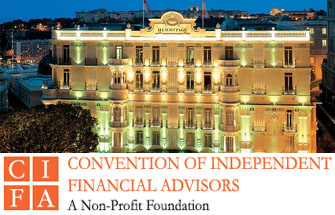May 21 – 13, 2018-06-04 Hotel Hermitage, Monaco.
Conclusions and Recommendations
The current model for global finance and economic growth has lost the trust and confidence of many stakeholders. New technologies are disruptive ; wealth and income are not fairly allocated ; financing for the Sustainable Development Goals is uncertain.
Populism and new authoritarianisms reflect anxieties and resentments about the status quo. Therefore, should global capitalism as we know it be repealed and replaced ?
The advantages of modernization and wealth creation have now spread across the globe. What has been called « The Rest » now lies more and more on a par with « The West ». Within five years, the share of global income held by countries such as China, Russia and Saudi Arabia will surpass the share held by Western liberal democracies.
The current global capitalism actually is a private/public duopoly. The blended system provides both public goods and services and private goods and services. In addition, it also provides goods and services of mixed character, goods and services which do have a non-rivalrous, common good character but which also can be privately owned, consumed and produced like finance, education and health care.
Private initiative and private wealth drives the introduction of new technology, which creatively overturns conventional equilibria of economic, social and political risk and return calculations. New goods and services are provided as innovative technology comes to market. Risk and reward curves shift in new, unanticipated, directions, leaving some more anxious than before. Robotics and artificial intelligence pose new risks of lost wages, decreased consumer purchasing power, lower public revenue for social safety nets. But on the other hand, robots and artificial intelligence will enhance the division of labor and lower the cost of goods and services, which will raise living standards most importantly for those with less income and wealth. Life outcomes change, some for the better, some for worse. There are winners and losers.
The organizational technology of industrial capitalism – the legal and financial structure of the corporation – is being supplanted by a new organizational technology – the platform. Platforms include Uber, AirB&B, Alipay, Amazon, Facebook, Google – and maybe even central banks which are platforms for widespread access to liquidity. Platforms generally have inconsequential balance sheets as the decentralize risk-taking and accountability. The disruptive tendency of platforms is biased towards increasing liabilities and avoiding risks, aligning well with those aspects of human nature which respond eagerly to temptations and self-seeking.
Yet these same platforms can be used constructively for exponential growth in our collective practical wisdom – if we do not see ourselves as victims but rather as masters of technology. Users and providers of internet platforms can evolve new best practices.
The other half of our current system of global capitalism – public authority – exists to moderate the excesses and the short-falls of private wealth creation. The job of the private sector is to step on the gas, while that of public authority is to apply the brakes. Both functions are needed when driving a car. Who, however, should decide on the speed of travel or the direction the car should take?
But recent failures of public authority provoke fear and dissatisfaction. Many governments have failed in their responsibility to protect their citizens and to provide them with well-being and human dignity. Terrorism continues ; tribalistic politics gains adherents from those who fear losing out ; immigration legal and illegal and refugees outflows stimulate resentment from host populations.
The result is disquiet, alienation from authority, even open hostility towards the private and public powers which inspire the system and govern its institutions.
Conclusions
- The Sustainable Development Goals of the United Nations stands as a beacon, perhaps our only trustworthy beacon, for hope and confidence.
- The global community must not abandon the creation of new wealth while insisting on more equitable distribution of its advantages.
- The current model fo global capitalism with its dual government under private markets and public authorities does not need to be replaced ; rather, it needs to be modernized.
- New public goods and services need to be provided by governments or by markets where more appropriate to offset current dysfunctions. The public good of wealth creation must be provided by government through the rule of law and incentives for more ownership of all forms of capital assets – financial, social and human, including Big Data and artificial intelligence.
- In addition, certain private goods and services need to be injected with public features of merit so that they can also deliver non-rivalrous benefits for the common good. Merit goods and services can be provided by markets for a price to be paid by users which can support a profit to their suppliers.
- Both for public and private actors, a re-balanced system would emphasize assets over liabilities and, importantly, would broaden our understanding of balance sheets to include new forms of risk as liabilities and intangible forms of capital (social and human) as assets.
- The vector for change of the system is in our ambitions and our goals ; we need a change of mindset. We need to transcend ideology and partisanship through a renewal of social capital, the resilience which comes from meeting the other face to face.






